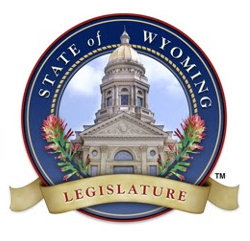
Governor Mark Gordon signed a supplemental budget that places more than $1 billion in savings, allowing the state to keep taxes low and generate higher investment returns that will benefit future generations. Today, the Governor also took action on 16 other bills.
“I congratulate the Legislature for its work on my budget recommendations,” Governor Gordon said. “It is gratifying that the budget submitted to me is closely aligned with my original recommendations. Where we disagreed, or where they overstepped the separation of powers embedded in our Constitution, I exercised my veto authority. The fiscal condition of the State remains strong.”
The Governor thanked the Legislature for delivering a budget that reflects the approach he outlined in his supplemental budget proposal – one that sets aside funds for leaner times ahead and addresses the inflationary pressures facing Wyoming citizens and the concerns of the state’s most vulnerable and those living on fixed incomes. Most notably, this budget provides for more property tax relief for citizens.
Governor Gordon noted that for every dollar of state revenue spent in the supplemental budget, it saves roughly $3.50. In addition to savings, the Supplemental Budget makes strategic investments in Wyoming. These include additional funding for the Property Tax Refund Program, support for the state’s energy industries and a market adjustment for state employees and teachers to offset the impacts of inflation.
The Governor used his authority to issue several line-item vetoes, including items that are overly prescriptive and those that present separation of powers concerns. The Governor’s budget letter explaining his line-item vetoes is attached and may be found here.
Governor Gordon also exercised his veto authority on Senate File 0071– State loan and bond programs. In his letter, the Governor pointed out that the bill reduces the amount of funding available to the State Loan and Investment Board for farm loans, shrinking the safety net available to the agriculture industry. The Governor also expressed concern that the changes the legislation makes to the interest rates for farm loans put the State in competition with private financial institutions.
